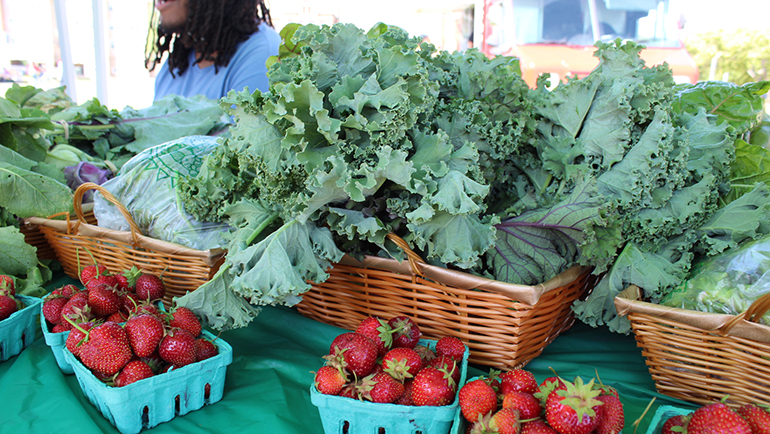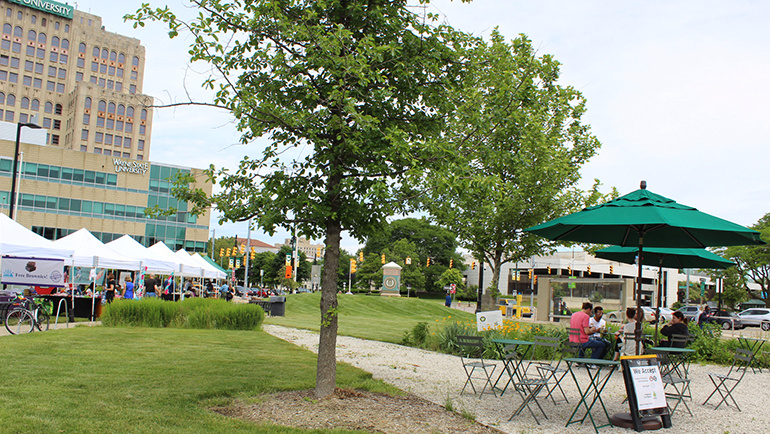
After a two-year hiatus due to the pandemic, the Wayne State University Farmers Market has returned to campus. The market, which opened the first week in June, continues weekly every Wednesday until the end of October.
“We hope the market will be a space where both our campus and surrounding residents can feel comfortable coming out and reconvening in a way that can be less anxiety inducing, since it is outdoors,” said Heather Ladanyi, division and center manager.
Located on the corner of Woodward and Warren avenues, the market shares greenspace with the Woodward | Warren Park. In addition to food and vendors, the Farmers Market features several lawn games such as cornhole, a large chess set, hula hoops, jump ropes, ladder ball and more that are set up each week to encourage individuals to linger and experience the market. Vendors have also been expanded to include a variety of non-food items ranging from pet clothing, hair and body care items, as well as candles and essential oils, among others.
The market will continue to focus on supplying healthy living programming, Ladanyi said, which will include services and information from a variety of campus and community providers, such as a menu of health services from Wayne Health Mobile Unit, which will offer blood pressure checks, BMI and health chats. There will also be a student led run/walk club from kinesiology health and sport studies students.
In addition, other healthy-living activities will be offered throughout the summer, including nutritional counseling and yoga in the park. Counseling and Psychological Services (CAPS) and the Campus Health Center will also be there weekly to provide a variety of health services, including a focus on mental health resources.

To support alumni of the university, the Farmers Market has offered reduced rental rates to WSU alumni. “Of special note,” Ladanyi said, “is Deeply Rooted Produce, a start up by a Wayne State kinesiology graduate, Dazmonique Carr, who owns and runs a small farm in Detroit and also supplies a mobile produce delivery service to combat healthy food access issues.”
All vendors are from Michigan, Ladanyi continued, with the majority local to Detroit. Returning will be a more diverse rotation of food trucks and prepared-food vendors that will offer a wide array of lunch options. Ladanyi stresses that the farmers market’s commitment to source its food locally means some selections might be limited early in the growing season. But as the summer continues, shoppers should find an abundant selection of fresh Michigan produce.
The Farmers Market, hosted by WSU’s Office of Campus Sustainability, is also offering a composting and recycling station every Wednesday from 10 a.m. until 3 p.m. Attendees can look for the tent with the “Waste Recovery Station” banner and big blue recycling cart. They accept various recyclable materials, along with plastic bags, Ladanyi said, and will also collect reusable bags to be repurposed.
The WSU Farmers Market is a collaboration between the Center for Health and Community Impact located in the Division of Kinesiology, Health and Sport Studies, and the Office of Campus Sustainability.
For more information, visit the Farmers Market Facebook page.
